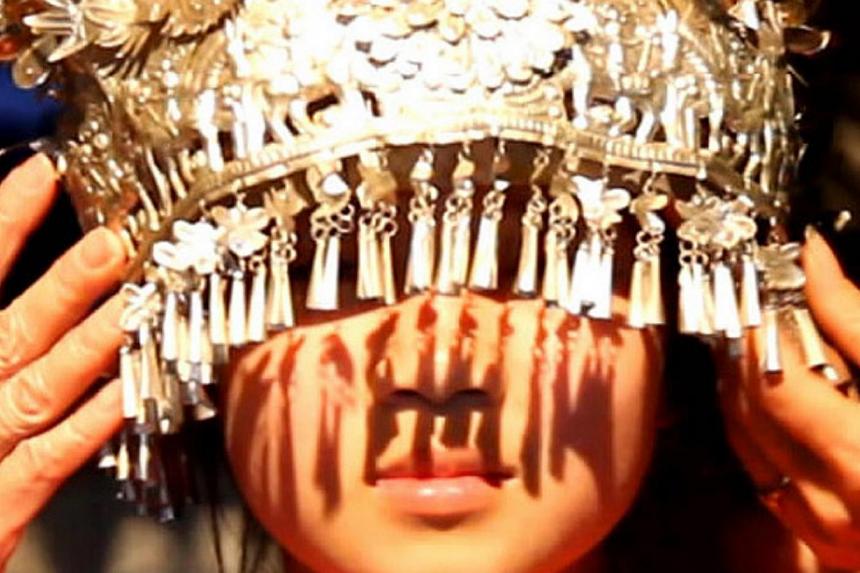Lauded conductor and composer Tan Dun, 57, was browsing at Taipei's Eslite Bookstore a few years ago when a book on nu shu caught his eye.
He devoured the book, which detailed a strange, secret writing system used exclusively by women in Hunan's Jiangyong county.
"How could I not know that my hometown was home to such a stirring story?" the Hunan native wrote in an e-mail interview conducted in Chinese. He immediately bought a plane ticket, flew from Taipei to Changsha and then drove more than 10 hours to get to the rural village where these women lived.
These are the women who inspired Tan's 40-minute symphony for harp and orchestra, titled Nu Shu: The Secret Songs Of Women, accompanied by 13 "microfilms" drawn from his field recordings, which were taken during his five years spent researching and documenting their culture.
It will be performed on Feb 21, with Tan, an Academy and Grammy award winner, conducting Singapore's Metropolitan Festival Orchestra and guest solo harpist Chen Yuying from the Shanghai Philharmonic Orchestra.
The one-night-only concert will also feature other works from the Chinese classical music repertoire, including Li Huanzhi's Spring Festival Overture and Liu Yuan's Train Toccata. Guzheng virtuoso Yuan Li will perform Fisherman Boat Song and Chinese erhu musician Zhao Lei will perform Zhao Jiping's The Grand Mansion Gate.
Nu shu, translated as "women's writing", dates back several hundred years and was created and used exclusively by women in an era when they were forbidden a formal education. Consisting of 600 to 700 characters, each representing a syllable, it is written in a wispy, cursive style.
This script was passed down from mothers to daughters across generations, sometimes even embroidered on cloth or written on paper fans, and is still in use today in Jiangyong county.
Tan says: "The most precious of all is that these words are actually passed down through the generations through singing, so I had an especially keen interest in what these women were singing. I started to analyse various languages that made use of singing and songs in order to explore how to transform it into a new symphony."
Tan said in an interview with Chinese newspaper Qing Nian Shi Bao (Youth Times) last year that the women were initially very guarded, but he told them that he was a musician, sang for them and let them listen to the likes of Itzhak Perlman and Yo-Yo Ma. They soon warmed to him.
Tan, who divides his time between New York and Shanghai, is well known for his compositions for films, particularly Crouching Tiger, Hidden Dragon (2000), and the microfilms he directed in Nu Shu are a vivid and integral component of the musical work, providing a visual feast of scenes from village life.
From an elderly woman weeping as she recalls her own wedding to a young woman rowing down a river of symbolic tears, Tan has captured a slice of a rapidly disappearing culture.
He is preoccupied with these vanishing cultures - his next work will focus on the ancient caves of Dunhuang.
"All of my new compositions have connections to ancient traditions that are currently dying out. My new works constantly build on old traditions."



